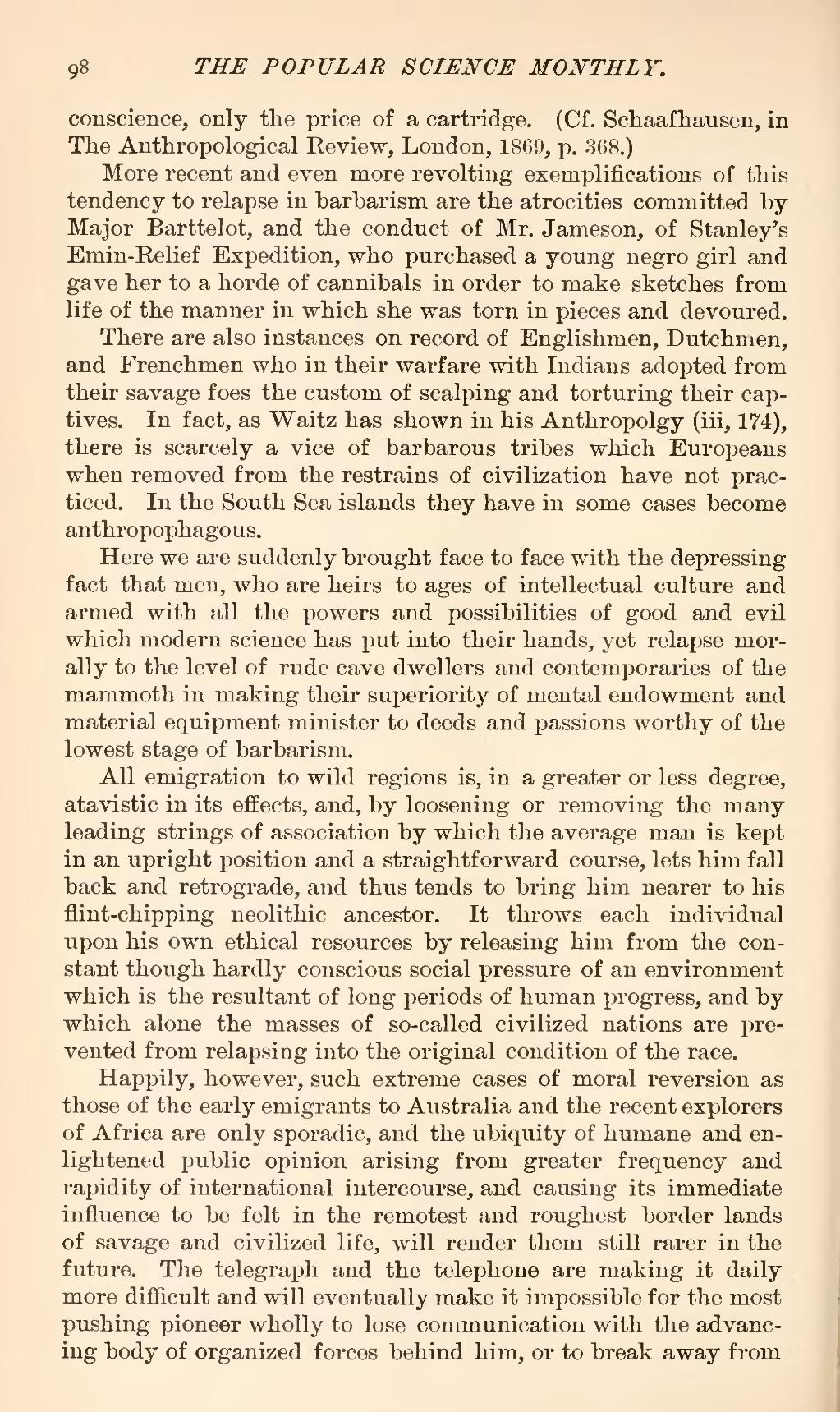conscience, only the price of a cartridge. (Cf. Schaafhausen, in The Anthropological Review, London, 1869, p. 368.)
More recent and even more revolting exemplifications of this tendency to relapse in barbarism are the atrocities committed by Major Barttelot, and the conduct of Mr. Jameson, of Stanley's Emin-Relief Expedition, who purchased a young negro girl and gave her to a horde of cannibals in order to make sketches from life of the manner in which she was torn in pieces and devoured.
There are also instances on record of Englishmen, Dutchmen, and Frenchmen who in their warfare with Indians adopted from their savage foes the custom of scalping and torturing their captives. In fact, as Waitz has shown in his Anthropolgy (iii, 174), there is scarcely a vice of barbarous tribes which Europeans when removed from the restrains of civilization have not practiced. In the South Sea islands they have in some cases become anthropophagous.
Here we are suddenly brought face to face with the depressing fact that men, who are heirs to ages of intellectual culture and armed with all the powers and possibilities of good and evil which modern science has put into their hands, yet relapse morally to the level of rude cave dwellers and contemporaries of the mammoth in making their superiority of mental endowment and material equipment minister to deeds and passions worthy of the lowest stage of barbarism.
All emigration to wild regions is, in a greater or less degree, atavistic in its effects, and, by loosening or removing the many leading strings of association by which the average man is kept in an upright position and a straightforward course, lets him fall back and retrograde, and thus tends to bring him nearer to his flint-chipping neolithic ancestor. It throws each individual upon his own ethical resources by releasing him from the constant though hardly conscious social pressure of an environment which is the resultant of long periods of human progress, and by which alone the masses of so-called civilized nations are prevented from relapsing into the original condition of the race.
Happily, however, such extreme cases of moral reversion as those of the early emigrants to Australia and the recent explorers of Africa are only sporadic, and the ubiquity of humane and enlightened public opinion arising from greater frequency and rapidity of international intercourse, and causing its immediate influence to be felt in the remotest and roughest border lands of savage and civilized life, will render them still rarer in the future. The telegraph and the telephone are making it daily more difficult and will eventually make it impossible for the most pushing pioneer wholly to lose communication with the advancing body of organized forces behind him, or to break away from
